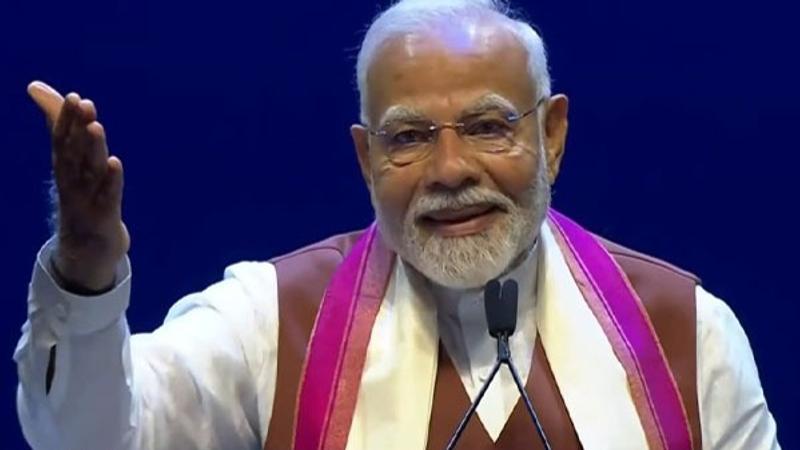Published 10:44 IST, September 23rd 2024
PM Modi Envisions $500 Billion Electronics Sector, 6 Million Jobs by 2030
"The electronic sector in India is currently valued at over $150 billion, and our aim is to triple that figure in the next six years," PM Modi said.

Prime Minister Narendra Modi on Monday outlined an ambitious plan to elevate India's electronics sector to $500 billion by 2030, with the potential to create six million jobs. The Prime Minister was speaking at a roundtable meeting with prominent CEOs of leading technology companies. The event, held in New York, served as a platform for discussing the future of technology in India and its role in the global market.
In his address, PM Modi stressed the importance of the semiconductor and chip industries, stating, "The policy we brought on semiconductors and chips is being welcomed in India, and people in this sector are excited to invest." He highlighted India's capability to become a reliable partner in the global semiconductor supply chain and stressed the government's commitment to fostering design innovation within the country.
"The electronic sector in India is currently valued at over $150 billion, and our aim is to triple that figure in the next six years," PM Modi said. He pointed out that this growth would coincide with a surge in interest from the youth in STEM (science, technology, engineering, and mathematics) fields, which is crucial for supporting the sector's expansion.
PM Modi further noted the necessity of balancing technology and democratic values, asserting, "The 21st century is technology-driven, and there is a need for a convergence of technology and democracy to guarantee human welfare." He underscored India’s talent pool, democratic framework, and market potential as key drivers for future growth.
The Prime Minister also discussed advancements in biotechnology, revealing the introduction of the BioSecure Act and the 'Bio E3 policy,' aimed at establishing India as a leader in biomanufacturing and health solutions. "I foresee the emergence of over 10,000 bio-startups by 2025," he stated.
Following Modi's address, several CEOs shared their insights on the meeting. Kris Singh, CEO of Holtec International, remarked, "PM Modi wants to make India energy independent and rapidly grow clean energy in the country. His understanding of the challenges is impressive."
Julie Sweet, CEO of Accenture, expressed her enthusiasm, stating, "It was an honor to meet PM Modi and hear about his leadership vision for the next decade, particularly in positioning India as a significant player in the global technology landscape."
Enrique Lores, CEO of HP Inc., highlighted the company's plans to expand manufacturing capabilities in India, while Eli Lilly's CEO, David Ricks, discussed the firm’s commitment to addressing health issues in India through localised production.
Nvidia CEO Jensen Huang praised Modi's eagerness to learn about technology and its potential impacts, saying, "This is India's moment; you have to seize the opportunity." He stressed the importance of India’s skilled workforce and the role of artificial intelligence in shaping the future.
As India gears up to meet these ambitious targets, the roundtable serves as a significant indicator of the government's proactive approach to attracting foreign investment and fostering a vibrant technology ecosystem. The focus on the electronics sector not only aims to bolster the economy but also to create substantial employment opportunities for the nation’s youth, signaling a bright future for India in the global tech arena.
Updated 11:08 IST, September 23rd 2024




